July 2018 Research, Science and Knowledge
Read the articles selected in July 2018
Big Bang telescope finale marks end of an era in cosmology
By Davide Castelvecchi
Source: Nature, 20 July
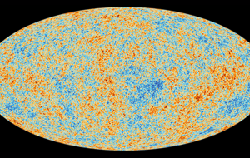
At the end of the Planck telescope’s mission, which has delivered the final map of the Universe in the afterglow of the Big Bang, other experiments on the Cosmic microwave background are expected to attract new fundings for major projects.
Read more:
https://media.nature.com/w800/magazine-assets/d41586-018-05788-5/d41586-018-05788-5_15963722.gif
Campuses outsource counselling despite soaring demand
Source: The Guardian Domestic, 17 July
The unbearable demand for mental health counseling in the UK campuses has led several universities to shift the burden of health care service to the NHS, what raises concerns and polemics.
Brain drain takes worst academics as well as the best, study says
By David Matthews
Source: Times Higher Education, 24 July

Italy is one of the countries most hit by the brain drain. A study looking at 1500 Ph.D. holders, whose 30% emigrated abroad, found that not only the best ones leave the country, but also the worst performing. Their different motivations lead to the conclusion that the brain drain is not to demonize.
Read more:
https://www.timeshighereducation.com/news/brain-drain-takes-worst-academics-well-best-study-says
Doctoral graduates “need five years of post-Phd career support”
By Jack Grove
Source: Times Higher Education, 23 July
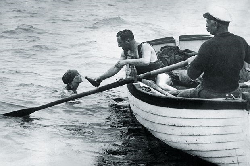
After a recent study, universities should establish new mechanisms to allow Ph.D. graduates to have access to a support which would help them to stay connected to academia and research and increase their publications.
Read more:
https://www.timeshighereducation.com/news/doctoral-graduates-need-five-years-post-phd-career-support
Turning the tide on the ebbing of public trust in higher education
By Michael Schill
Source: University World News, 20 July
The skepticism about higher education pronounced overall and linked with the anti-intellectualism expressed among both conservatives and populists shows a lack of ideological and political diversity in the universities.
Read more:
http://www.universityworldnews.com/article.php?story=20180713131643672
EUA Roadmap Research Assessment in the Transition to Open Science
Source: http://www.eua.be
In the transition to Open Science and Open Access to scientific publications, it’s essential to change the current paradigm and introduce new models of assessment, to focus on, beyond the journal impact factor, the research quality, and its innovative potential.
Read more:
From artists to scientists, anyone can have a successful streak at any time
Source: Nature, 11 July

After a study published in Nature, the success of a scientist, as well an artist, is not mathematically linked with the age, and can also be late. Furthermore, as creativity should not be measured after productivity, so scientific impact goes beyond citations.
Read more:
https://www.nature.com/articles/d41586-018-05682-0
Teaching excellence through professional learning and policy reform
By Andreas Schleicher
Source: http://www.oecd.org
The difficulty of reforming the education sector is linked with the changing nature of learning and the need to teach students not only skills in a subject but also a sense of compass in the known world. On the other side, if teaching is learning to learn, we can’t help without specific disciplines as the foundation of good teaching.
Read more:
All learning “is going to happen digitally”, Coursera boss says
By Anna Mckie
Source: Times Higher Education, 15 July

Learning is becoming more and more digital and, rather than campuses classrooms, it is replacing textbooks. The online platforms are driving universities out of concurrence only in the sector of lifelong learning, where online degrees are being offered.
Read more:
https://www.timeshighereducation.com/news/all-learning-going-happen-digitally-coursera-boss-says
Universities must step up to cater for “Society 5.0”
By Silvia Richter
Source: University World News, 13 July
Japan’s fifth Science and Technology Basic Plan intends to tackle the major global challenges with a human-centered approach. In the society 5.0, the task of universities is to do open science, developing new fields of research and international collaboration.
Read more:
http://www.universityworldnews.com/article.php?story=20180711171755220
Effective teacher policies
Source: http://www.oecd.org
Inequities in the scholastic performances between advantaged and disadvantaged teachers depend on the geographical inequities by sorting quality teachers. Policies more careful in the training and compensation of these professionals can achieve more equity in the education and in the life.
Read more:
Publish or perish culture may be “enemy of impact”
By Simon Baker
Source: Times Higher Education, 10 July

A research strategy focused on the quantity instead of the quality of publications ends up with neglecting the “big questions” and missing major breakthroughs. A study published in Scientometrics examines the difference between disciplines put at different ends of the scale of research impact.
Read more:
https://www.timeshighereducation.com/news/publish-or-perish-culture-may-be-enemy-impact
Has teaching in higher education become redundant?
By Wafa Singh
Source: University World News, 6 July
In the times of Google, the teaching function has changed. If all information is everywhere online available, classroom lectures should encourage students participation and critical skills, proposing applications of theories anchored to their specific realities.
Read more:
http://www.universityworldnews.com/article.php?story=20180626151321816
EUA response to Joint Research Centre report on regional innovation impact assessment for universities
Source: http://www.eua.be
The assessment of the regional universities performance should present a framework where quantitative indicators are contextualized to give a picture of the direct and indirect contributions to the development of the innovation ecosystems, including culture and society.
Read more:
Does research conflict with teaching? It depends what you are researching
By Richard Arum
Source: Times Higher Education, 5 July
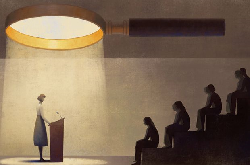
The data collected by researchers in the social sciences aren’t applied in the campus of the own communities and can’t be used to improve the education quality. It is needed to leverage all research products to recognize in the technological change a chance and not a threat.
Read more:
Delivering talent: careers of researchers inside and outside academia
Source: LERU
If the society of knowledge has increased the demand for university education, has also changed the way of making research, which even in funding mechanisms presumes the collaboration and the openness of universities with other partners, paving the way for new career perspectives for researchers.
Read more:
https://www.leru.org/files/LERU-PP-DeliveringTalent_2018-June.pdf
A Regional Innovation Impact Assessment Framework for Universities
By Koen Jonkers, Robert Tijssen, Athina Karvounaraki, Xabier Goenaga
Source: European Commission
A new evaluation system based on the regional innovation impact performance should promote the contribution of universities to the development of local economies. Research funding can’t neglect innovation and the synergy between universities and industry, overcoming the disciplines’ borders.
Read more:
http://publications.jrc.ec.europa.eu/repository/bitstream/JRC109020/jrc109020_iiu27.pdf
Widening access “doesn’t have to be the enemy of excellence”
By John Morgan
Source: Times Higher Education, 27 June
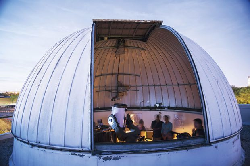
There aren’t universities consecrated to research or devoted to teaching. Every distinction between excellence and inclusivity is sterile, neglecting the impact of education on the social mobility, which impedes the loss of a wide human potential.
Read more:
https://www.timeshighereducation.com/news/widening-access-doesnt-have-be-enemy-excellence
Education, personalized
By Laura Pappano
Source: The Washington Post, 2 July
In the US is bubbling up a movement for a school education tailored to the needs of students, with the support of technological tools that help to learn and text the achieved results in a condition of child’s well-being, yet many are the social questions being raised.
Learning to reward risk-takers, imaginative thinkers
By Nita Temmerman
Source: University World News, 29 June
Education fails when gives away from students the capacity to make questions and build responses. Education’ purpose is to deliver the tools to think creatively shaping people useful to the society.
Read more:
http://www.universityworldnews.com/article.php?story=20180626111604893
Establishing Horizon Europe- the Framework Programme for Research and Innovation, laying down its rules for participation and dissemination
Source: the European Commission
Horizon Europe, aligned with the Union’s policies on development, has been prepared to take into account the achievements of the previous research programmes in terms of impact on the growth, the society and the environment, made possible only by the dissemination and the economic exploitation of scientific breakthroughs.
Read more:
file:///C:/Users/Roberta%20Capo/Downloads/PART-2018-332577V1%20(2).pdf
Basic research: why it must be a priority in Horizon Europe
By Teresa Roldán
Source: http://www.eua.be
Horizon Europe overshadows basic science within a short-term evaluation system, which demands an immediate profit from research, involving interests of the private sector. But fundamental science is a public good and feeds our innovation capacity.
Read more:
Searching for credible heretics: a new addition to academic research selection
By Donald Braben
Source: Times Higher Education, 26 June

The Venture Research is an initiative aimed at funding ideas outside current schemes of thinking and hence less likely to have success. The selection doesn’t consider the impact of research and the peer review, but only the reasoning strength of the candidate and his possible outcomes.
Read more:
Reconfiguring the European higher education sector
By Aline Courtois
Source: University World News, 22 June
A hard Brexit would transform the European higher education landscape, given the position of the UK in the research funded by the EU and the importance of free movement for institutions to flourish and to hold off xenophoby, the worst enemy of the European project.
Read more:
http://www.universityworldnews.com/article.php?story=20180621101812552
African scientists launch their own preprint
By Smriti Mallapaty
Source: Nature, 25 June
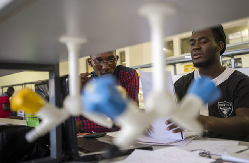
A group of African researchers has created a platform where they share their preprint with their colleagues with the advantage of getting early feedback from their peers and to give more visibility to the own community, spreading knowledge through the society.
Read more:
https://www.nature.com/articles/d41586-018-05543-w
Go to the content
October 2018 Research, Science and Knowledge
Read the articles selected in October 2018
September 2018 Research, Science and Knowledge
Read the articles selected in September 2018
June 2018 Research, Science and Knowledge
Read the articles selected in June 2018
May 2018 Research, Science and sKnowledge
Read the articles selected in May 2018
April 2018 Research, Science and Knowledge
Read the articles selected in April 2018
March 2018 Research, Science and Knowledge
Read the articles selected in March 2018
February 2018 Research, Science and Knowledge
Read the articles selected in February 2018
January 2018 Research, Science and Knowledge
Read the articles selected in January 2018

